Sins of the Crusaders – For the Love of Money?
“We now know that greed cannot have been the dominant motive among the first crusaders, not least because, as recent research has shown, for most participants the expedition promised to be utterly terrifying and cripplingly expensive.”
Thomas Asbridge, The First Crusade: A New History
“Scholars have discovered that crusading knights were generally wealthy men with plenty of their own land in Europe. Nevertheless, they willingly gave up everything to undertake the holy mission. Crusading was not cheap. Even wealthy lords could easily impoverish themselves and their families by joining a Crusade. They did so not because they expected material wealth (which many of them had already) but because they hoped to store up treasure where rust and moth could not corrupt…Of course, they were not opposed to capturing booty if it could be had. But the truth is that the Crusades were notoriously bad for plunder. A few people got rich, but the vast majority returned with nothing.”
Thomas Madden
Money interests dominate our leaders today, and so the assumption is that money must have always dominated leaders, including the medieval aristocracy. The truth is while power and money have always held sway over the hearts of men and drawn the wrong sort to positions of power, during the Middle Ages hereditary inheritance prevented those sorts from rising to power to a large extent. And the feudal aristocracy, in tandem with a church hostile to trade, the charging of interest and greed, often despised merchants and money. Money did not have the same grip over society as it does in our modern materialistic world.[1]
In my earlier articles, I referred to those who went to the Holy Land as making great sacrifices and risking life, lands, and wealth to help their persecuted brothers in the East. They did not view the quest as one for profit and gain, but as self-sacrifice.
At the time of the events, matters were viewed in the exact opposite way to how many see them today; the ones who left were seen as making a sacrifice, those who stayed did so out of greed. For example, contemporary historians like Ekkehard of Aura said those who did not engage in the pilgrimage did so because they were focused on money and power; in contrast, the Crusaders made a great sacrifice by giving those things up.[2]
Even the few, who were set to gain, risked lives, family and lands and endured thirst, diseases, baking heat and blistering cold. The journey was not worth the loot and gain that might be had. Many deserted. A select few individuals, such as Bohemund of Taranto, saw the Crusades as an opportunity for adventure and to gain power, yet at the time of the Crusades, critics of those who stayed in Europe claimed they did so for money, unwilling to surrender their wealth to help those in the East.
And even if they did survive and return they often suffered loss, as historian Alexander Clarence Flick wrote: “Many powerful feudal lords, who divided sovereign power with the king, were killed or returned impoverished and were unable to recover their power.”[3] Having traveled long distances at extraordinary expense, the financially-starved and desperate army used up all their remaining resources to return to Europe.[4]
And those who remained in the Holy Land after the successful First Crusade also were considered self-sacrificing. William of Tyre described Raymond of Toulouse as follows: “Count Raymond, nonetheless, spurned his native land and did not return home, but, instead, most devoutly followed Christ. He extended further the pilgrimage upon which he had embarked and followed it in voluntary poverty to the end.”[5] When the King of France, Philip II Augustus, left the Third Crusade to improve his position in France, Richard the Lionheart of England who stayed behind said, “We, however, place the love of God and his honor above our own and above the acquisition of many regions.”
Crusading cost a knight five or even six times his yearly income.[6] Professor Rodney Stark wrote, “Most went at immense personal cost, some of them knowingly bankrupted themselves to go… crusading was a very expensive undertaking… the best estimate is that a typical crusader needed to raise at least four times his annual income before he could set forth.”[7] Scholar Malcolm Barber wrote, “few of the aristocratic participants could have seen it as a source for potential profit, it cost four or five times the annual income of a knight to equip one.”[8]
The elite Western unit was the armored knight; maintaining them during long journeys to the Holy Land was extremely challenging. This was especially true when their horses suffered casualties. Furthermore, the cost of knighthood was already a significant drain on resources in the West, and the additional expense of maintaining the knightly unit in distant lands made it even more burdensome.
Many kings spent the realm’s entire treasury and multiple years’ income to fund more prominent crusades. Over a 10-year period, King Louis IX of France spent six times the royal income to fund Crusades to the Holy Land. Richard the Lionheart drained all of England’s money to fund his Crusade.[9] One observer said of Richard that he, “put up for sale all he had, officials, Lordships, Earldoms, Sheriffdoms, castles, towns, lands, everything.” Knights sold vineyards, mills, land, and even entire counties to help pay for the voyage. Nobles sold their lands, vineyards, castles, and forests and even went bankrupt to fund their crusade and help others who wished to go. Kings paid for knights to go on crusades, weakening themselves at home even if they did not personally go.[10]
Volunteers offered much aid. Historian Maurice Keen wrote, “crusading was expensive, and the costs were borne by the crusader themselves, their families, their lords and… the church in the west.”[11] And scholar Thomas Asbridge points out, “many families endured major financial sacrifices to enable their kin to afford to crusade…only a handful of crusaders actually stayed in the Levant after the expedition, and among the returning majority none came home laden down with riches.”[12]
Not only did knights and foot soldiers make the journey at a tremendous financial cost, but most believed that by taking the cross, they were unlikely to return, let alone with riches.[13] Many people who were leaving and never expected to return, donated their lands and gave away their positions before departing.[14] Several Crusader lords made arrangements for their possessions before departing, assuming that they would not return.
The Church helped fund the Crusades. Popes, bishops, kings, and lords raised taxes to help fund expeditions or gifts to the crusader states. The Church consistently made significant donations to help d the Holy Land and made large-scale contributions to fund various crusades and help alleviate some of the expenses, stating,
“Lest we should seem to put on other men’s shoulders burdens so heavy that we would not so much as put a finger to them, like those who say, but do not, we give 30,000 pounds out of our savings for this work, and besides the passage-money which we give all crusaders from Rome and the surrounding country, we also give 3,000 silver marks which are left in our hands from the gifts of certain Christians, the rest having been spent for the benefit of the holy land by the patriarchs of Jerusalem and the masters of the Templars and the Hospitallers. Moreover, we and our brethren, the cardinals of the holy Roman church, will pay a tenth of our incomes; and let all know that they must faithfully do this.”[15]
The wealth gained by groups like the Templars in the Holy Land came not from “loot” but from funds from the West. The goal of the crusades was never money, they were a burden on the West as a whole. During the Fourth Crusade (which was derailed from its original aim), Crusaders invaded Constantinople to loot and subsequently rule it. However, Pope Innocent III, who had previously excommunicated the Crusaders, condemned their actions, stating that they were only interested in earthly treasures, not heavenly ones. He said of the Fourth Crusade, “you apply yourself not to the recovery of Jerusalem, but to seize Constantinople, preferring earthly to heavenly riches… no wonder the Greeks call them dogs.”[16] Urban II said at the Council of Clermont, “Whoever goes on the journey to free the church of God in Jerusalem out of devotion alone, and not for gaining glory or money, can substitute the journey for all penance for sin.”[17] Professor Rodney Stark points out that Pope Alexander II called a crusade to Spain in 1063, which was closer and had rich lands to acquire, yet few responded. But later many knights volunteered for a more expensive, more perilous, and longer journey towards the Holy Land, which promised fewer rewards.[18] Scholar Thomas Asbridge wrote, “The once-fashionable myth that the crusaders were self-serving, disinherited, land-hungry, younger sons must be discarded.”
[1] (Smith and Hedberg Jr. 2024)
[2] (“Ekkehard of Aura: On the Opening of the First Crusade”)
[3] (FLICK, Ph. D., Litt. D 503)
[4] (Asbridge 2005 327-328)
[5] (Medieval Sourcebook: William of Tyre: History of Deeds Done Beyond the Sea)
[6] (Madden 5-6) (Weidenkopf 2014 43) (Weidenkopf 2017 99)
[7] (Stark 2010)
[8] (Barber 47)
[9] (Barber 459)
[10] (Weidenkopf 2014 189)
[11] (Keen 95)
[12] (Asbridge 2005 68-69 also see 329)
[13] (Tierney and Painter 265) (Stark 210 111-114)
[14] (Asbridge 2005 76-77)
[15] (Pope Innocent III, Fourth Lateran Council (1215), canon 71)
[16] (Weidenkopf 2014 148-149)
[17] (Stark 210 108)
[18] (Stark 2017)

Jeb Smith is the author of four books, the most recent being Missing Monarchy: Correcting Misconceptions About The Middle Ages, Medieval Kingship, Democracy, And Liberty. Before that, he published The Road Goes Ever On and On: A New Perspective on J. R. R. Tolkien and Middle-earth and also authored Defending Dixie’s Land: What Every American Should Know About The South And The Civil War, written under the name Isaac C. Bishop. Smith has authored dozens of articles in various publications, including History is Now Magazine, The Postil Magazine, Medieval History, Medieval Magazine, and Fellowship & Fairydust and featured on various podcasts including The Lepanto Institute.

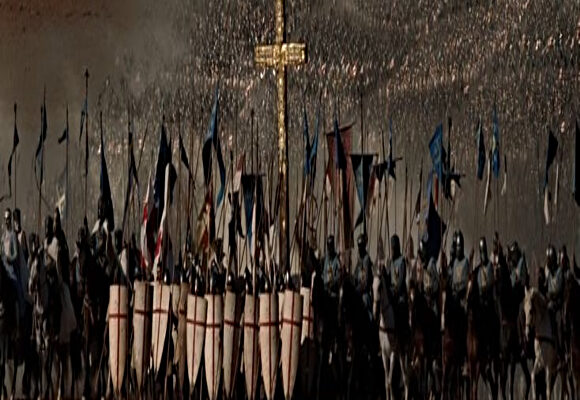
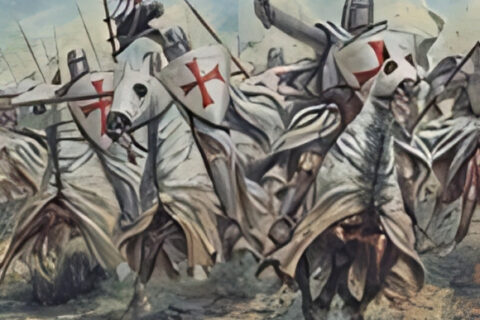
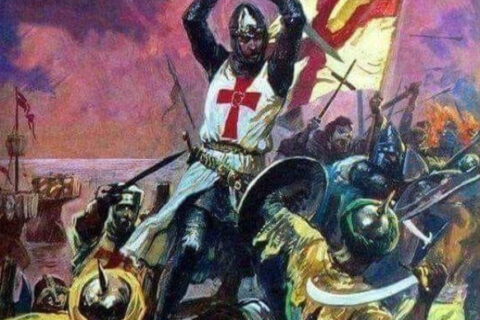
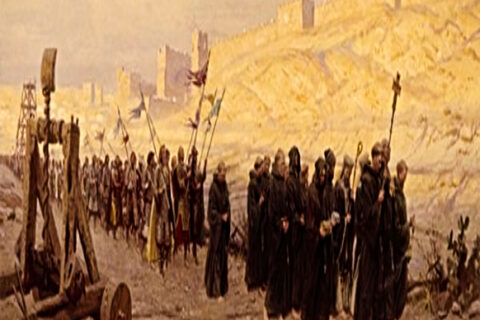
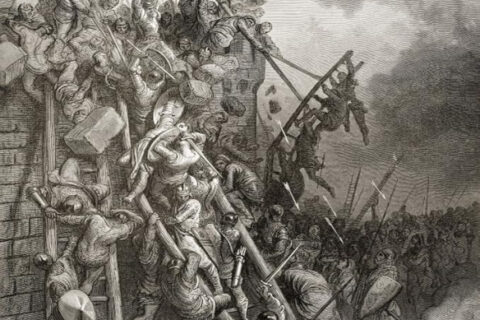
This helps explain why it is, when a rare man comes along who can’t be bought, he’s vilified and smeared with every calumny imaginable.